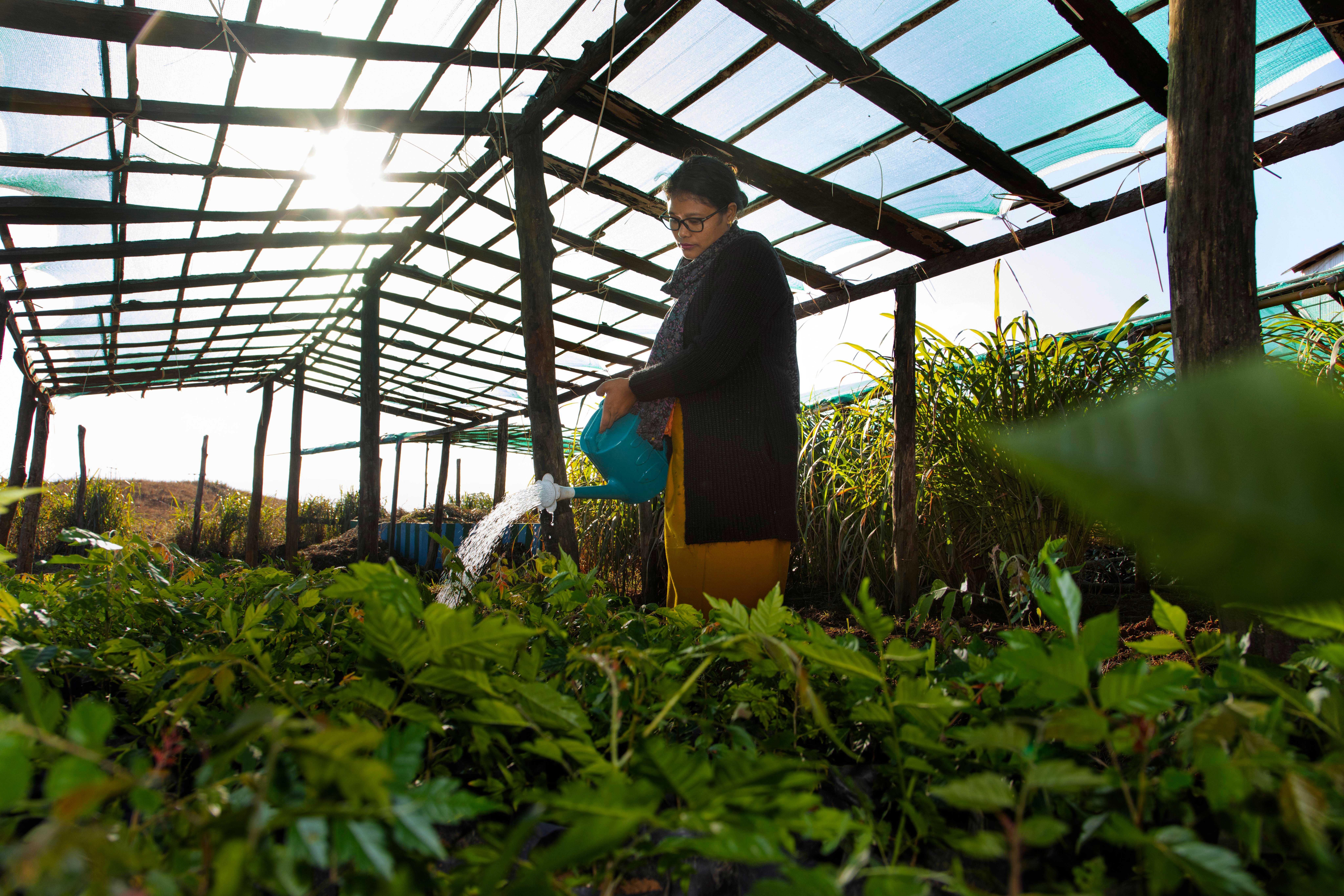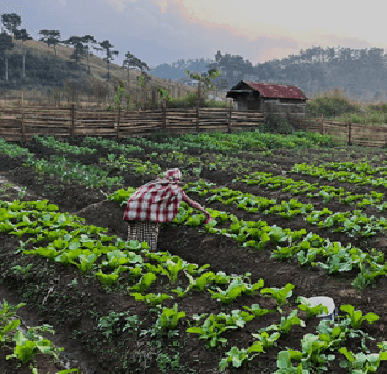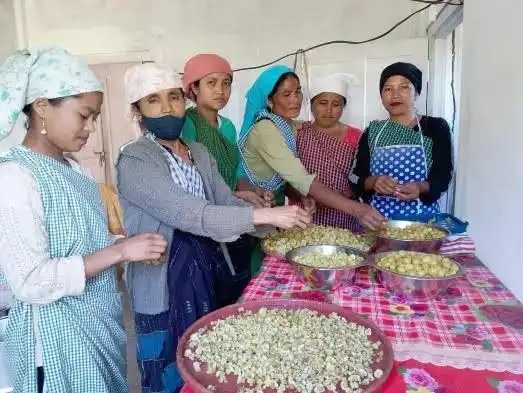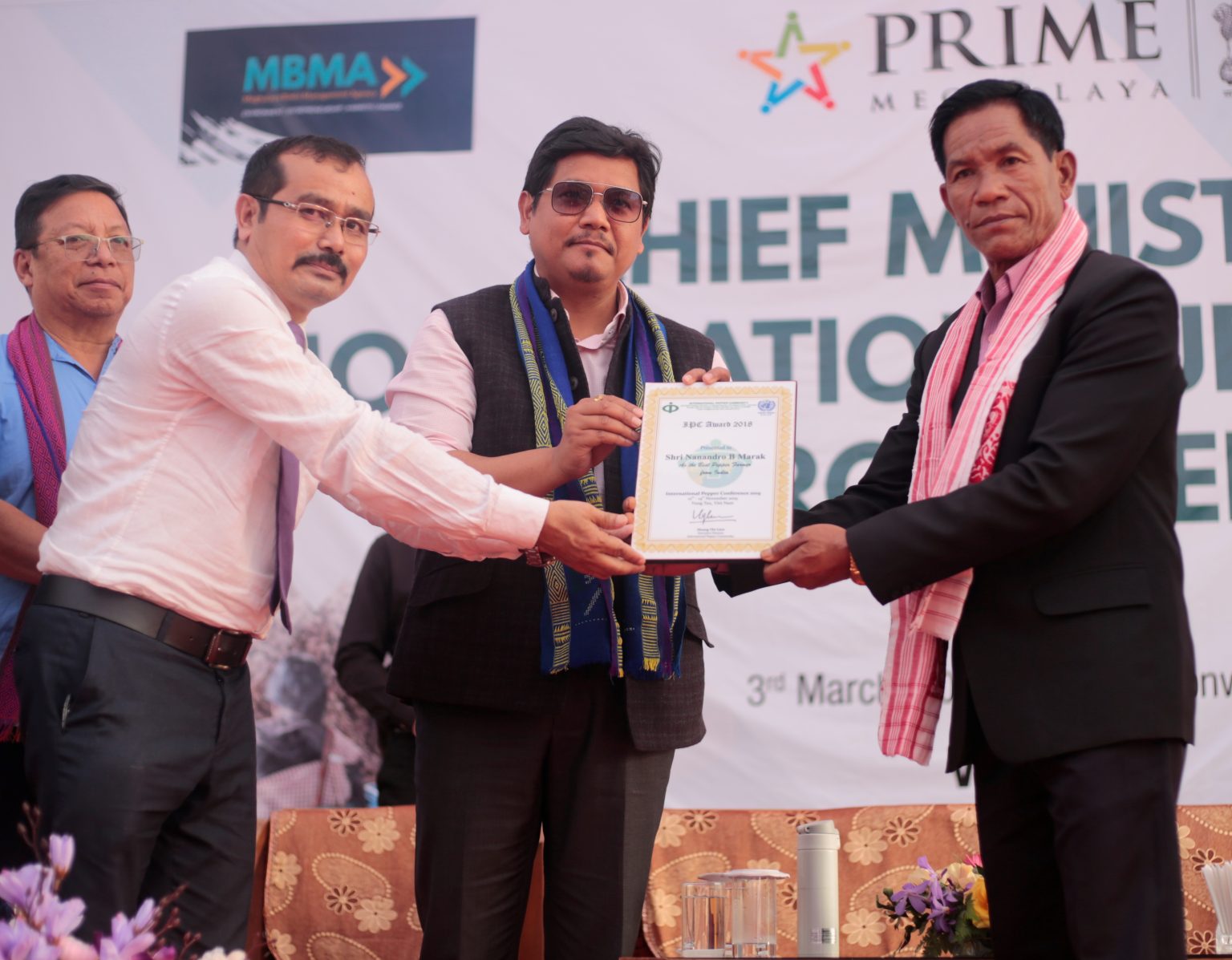
On the 3rd of March, 2021, following the PRIME (Promotion and Incubation of Market-driven Enterprises) Entrepreneurship Awards 2021 in Shillong, the Inclusive Supply Chain & Enterprise Development (ISC&ED) team of Meghalaya Basin Management Agency (MBMA) organized a programme at Tura Law College, West Garo Hills to launch the Chief Minister’s Mobilization Support for Producers fund.
The Chief Minister’s Mobilization Support for Producers fund provides support to farmers of Meghalaya to help increase production and overcome challenges that relate to the cultivation of agricultural produce and the rearing of livestock. Each block was provided with a fund of Rs 5000 per Producer Group (PG) member while 18 Service Providers (SP) or paravets received a fund of Rs. 50,000 each. Further, 18 Collective Marketing Centers (CMCs) were provided with support funding of Rs. 7 lakhs each for pre-fabricated storage.
The initiative will encourage producers to sell and trade directly at the CMCs that are set up in those villages or clusters which have strong Integrated Village Cooperative Societies (IVCS) and big potential for improving incomes through the provision of support services that include aggregation, processing, and marketing of produce.
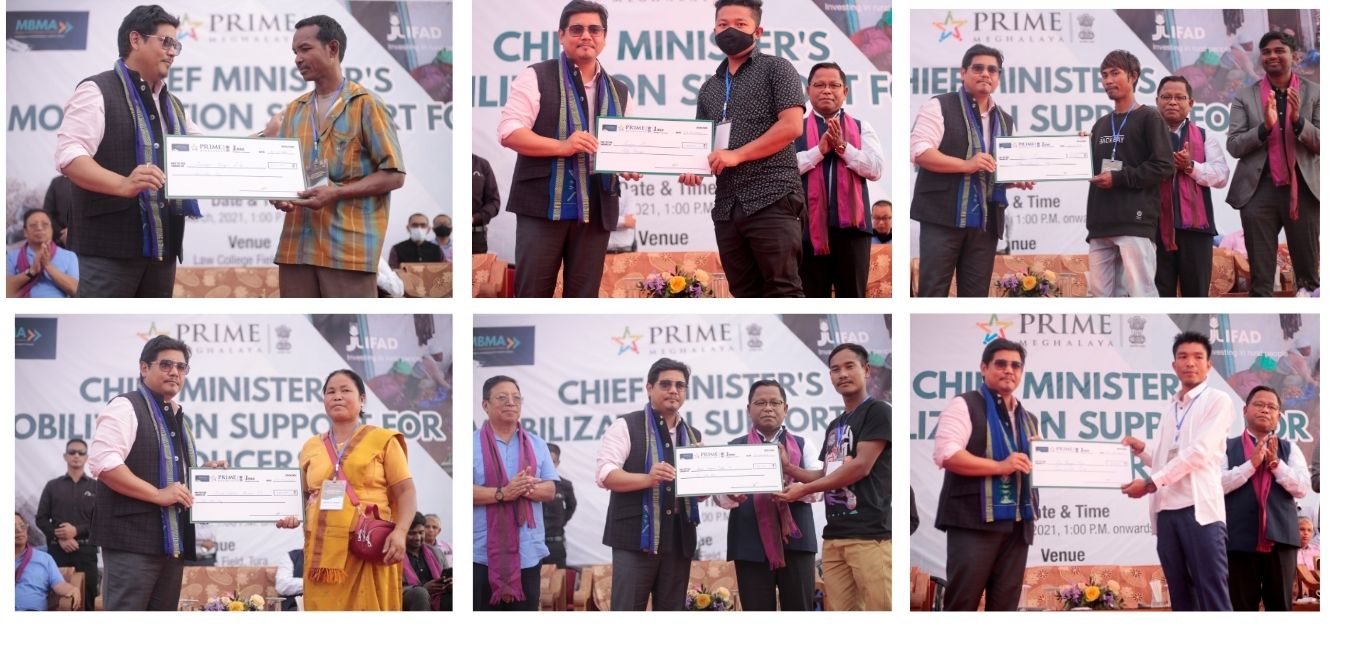
OPENING REMARKS
Dr. Vijay Kumar D., IAS, Commissioner and Secretary, Planning Department, Government of Meghalaya, and CEO MBMA
Dr. Vijay Kumar D. spoke about the importance of the collectivization of agricultural produce. While mentioning that Meghalaya is known for quality agricultural produce such as Lakadong Turmeric, ginger, various handicraft works, and other products, he stated that production has always been done at the individual level and therefore, farmers often face numerous challenges such as subsistence-level practices, cultural or geographical constraints, production and marketing issues as individuals, inadequate access to credit, and poor market linkages.
To overcome these challenges, the IFAD-supported Megha-LAMP Project has in the past 2 years conducted intensive studies to identify innovative ways to address existing challenges, and the idea of setting up CMCs in different clusters and villages materialized. These CMCs are primary farm gate infrastructures that are nodes for aggregation, processing, and marketing of produce in the villages and clusters under the project. The CMC is also an input supply unit. Hence, it serves as a one-stop-shop at the village level.
On the role of Service Providers, Dr. Kumar informed that the project has built a cadre of people that can provide extension services such as vaccination, crop advisory, supply of input and feed, and aggregation of output to communities including those that reside in hard-to-reach villages with difficult terrain and poor or no means of transport.
He stressed that it is essential for farmers that are engaged in similar types of activities with high potential for income generation to form a PG so that collectively, earnings would improve.


